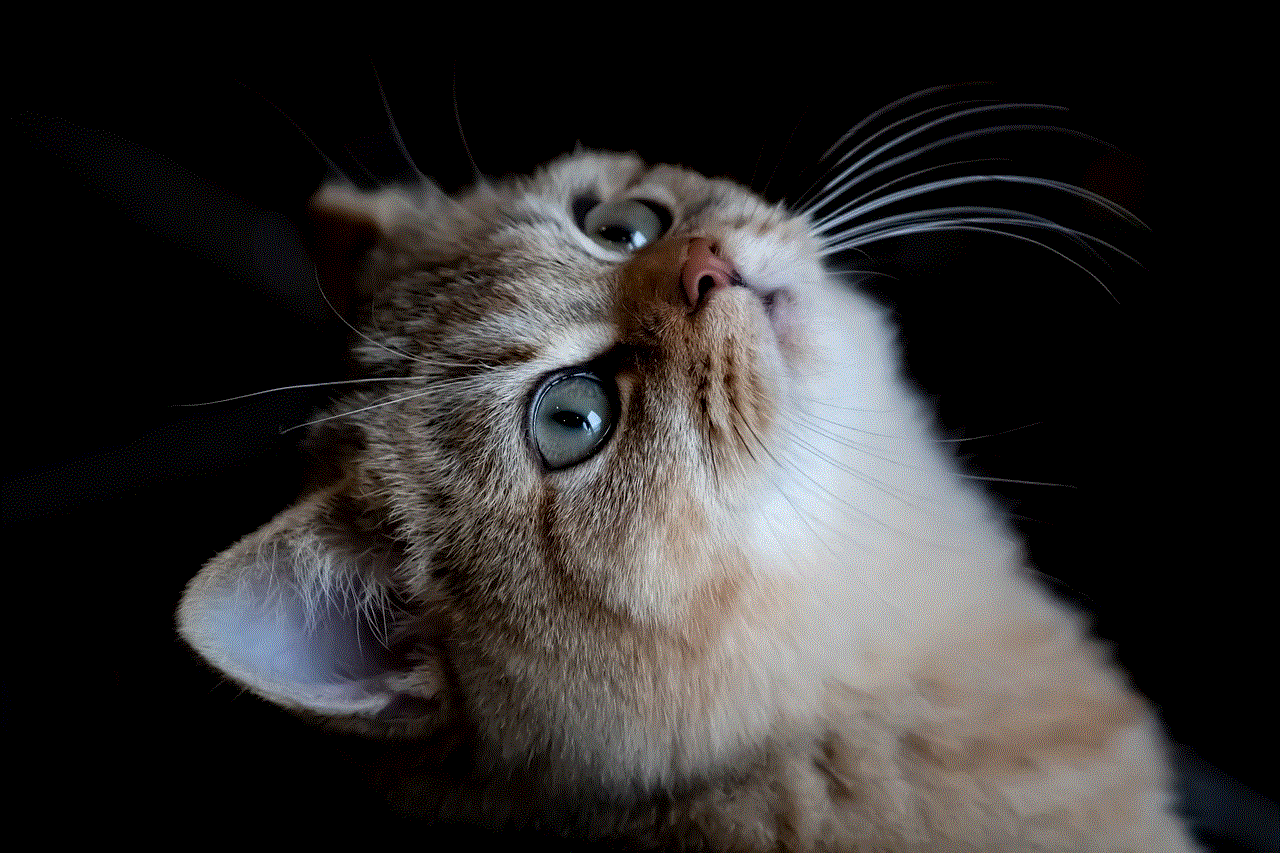how to turn off live location on iphone
Live location sharing has become increasingly popular among smartphone users, especially on iOS devices like the iPhone. This feature allows individuals to share their real-time location with friends and family, making it easier to meet up or keep track of loved ones. However, there may be times when you want to turn off this feature for privacy reasons or to conserve battery life. If you’re an iPhone user wondering how to turn off live location on your device, you’ve come to the right place. In this article, we will discuss the steps you need to take to disable this feature and explore some alternatives for staying connected without sharing your location.
What is live location sharing?
Live location sharing is a feature that allows users to share their real-time location with others through their smartphone. It uses the device’s GPS technology to track and share the user’s location with anyone they choose. This feature is commonly found in messaging apps, such as WhatsApp, iMessage, and facebook -parental-controls-guide”>Facebook Messenger, and it can be very useful in certain situations. For example, if you’re meeting up with friends in a crowded area, you can easily share your live location to help them find you. Or if you’re traveling to a new place, you can share your location with your family to let them know you’ve arrived safely.
However, there are also times when you might want to turn off live location sharing. For instance, if you’re attending a private event and don’t want others to know your whereabouts, or if you’re trying to conserve battery life on your device. Whatever your reasons may be, turning off live location on your iPhone is a simple process that can be done in a matter of seconds.
How to turn off live location on iPhone
If you’re an iPhone user who wants to disable live location sharing, follow these steps:
Step 1: Open the Settings app on your iPhone.
Step 2: Scroll down and tap on Privacy.
Step 3: Tap on Location Services.
Step 4: Scroll down and find the app that you want to turn off live location for.
Step 5: Tap on the app and select Never under the Location Access option.
By following these steps, you can turn off live location for any app on your iPhone. This means that the app will no longer be able to track your real-time location and share it with others. However, keep in mind that this will also disable other location-based features of the app, such as local weather updates or nearby recommendations.
If you want to completely turn off location services on your iPhone, you can do so by following these steps:
Step 1: Open the Settings app on your iPhone.
Step 2: Scroll down and tap on Privacy.
Step 3: Tap on Location Services.
Step 4: Toggle off the switch next to Location Services.
This will turn off location services for all apps on your iPhone, including live location sharing. However, you won’t be able to use any location-based features on your device until you turn it back on.
Alternatives to live location sharing
If you want to stay connected with your friends and family without sharing your live location, there are a few alternatives you can try. One option is to use a messaging app that offers temporary location sharing. This means that you can share your location for a limited time period, after which it will automatically stop sharing. This can be useful if you only want to share your location for a specific purpose, such as meeting up with someone or coordinating a ride.
Another alternative is to use a location-based app that allows you to manually check in at a specific location. This way, you can share your location with others without having it constantly tracked and shared. You can also use group messaging apps that allow you to create a temporary group for specific events or trips, where you can share your location with each other only during that time.
In addition, many social media apps offer the option to share your live location with your friends or followers. However, keep in mind that this can also compromise your privacy, so be cautious when using this feature.
Privacy concerns with live location sharing



While live location sharing can be a useful feature, it also raises some privacy concerns. By sharing your real-time location with others, you’re essentially giving them access to your whereabouts at all times. This can be a cause for concern, especially if you’re sharing your location with people you don’t know very well.
Furthermore, if you’re using a messaging app that offers live location sharing, you should be aware that the app may be collecting and storing your location data. This data can be used for targeted advertising or other purposes, which may not be in your best interest. Be sure to read the app’s privacy policy and understand how your data is being used before sharing your live location.
In conclusion, live location sharing is a convenient feature that can make it easier to stay connected with others. However, there may be times when you want to turn it off for privacy or battery life reasons. By following the simple steps mentioned in this article, you can easily disable live location on your iPhone. Additionally, there are alternatives available for staying connected without constantly sharing your live location. It’s important to weigh the benefits and risks before deciding to use this feature, and always be mindful of your privacy when sharing your location with others.
celebrity ai voices
In recent years, the use of artificial intelligence (AI) has become increasingly prevalent in various industries, including the entertainment industry. One of the most intriguing applications of AI in entertainment is the development of celebrity AI voices. These are computer -generated voices that are designed to sound like specific celebrities, allowing them to “speak” in various media, such as movies, TV shows, and even audiobooks. While this technology has been met with both excitement and controversy, there is no denying its potential impact on the entertainment industry. In this article, we will explore the development of celebrity AI voices, their potential uses, and the ethical considerations surrounding their use.
The concept of celebrity AI voices is not entirely new. In the past, voice actors have been used to imitate the voices of famous personalities, such as presidents and actors. However, with advancements in AI technology, it is now possible to generate a voice that sounds remarkably similar to a specific celebrity, without the need for a human voice actor. This is achieved through deep learning algorithms, which analyze a large amount of audio data from the chosen celebrity and create a voice that mimics their tone, rhythm, and inflection.
One of the main uses of celebrity AI voices is in the entertainment industry, particularly in movies and TV shows. This technology allows filmmakers to incorporate the voices of deceased or retired actors into their projects, or to create new characters with unique voices that would be difficult for a human to replicate. For example, in the 2019 film “Fast & Furious Presents: Hobbs & Shaw,” an AI-generated voice was used for a young version of Vin Diesel’s character, Dominic Toretto. This allowed the character to have a voice that was consistent with the older version of the character, even though Diesel himself did not record the voice.
Similarly, in the animated film “Rogue One: A Star Wars Story,” the late actor Peter Cushing’s voice was recreated using AI for his character, Grand Moff Tarkin. This was done with the permission of Cushing’s estate and was seen as a tribute to the actor. The use of AI in these instances not only allows filmmakers to seamlessly incorporate the voices of specific celebrities but also serves as a way to honor their legacy.
Apart from movies and TV shows, celebrity AI voices are also being used in other forms of media, such as audiobooks and commercials. For example, in 2020, the audiobook version of James Patterson’s “The Coldest Case” was narrated by an AI-generated voice modeled after the author himself. This allowed the audiobook to have a more personal touch, as if the author himself was narrating the story.
However, the use of celebrity AI voices has not been without controversy. One of the main concerns raised is the potential impact on the livelihood of voice actors. With AI-generated voices becoming more realistic and accessible, there is a fear that voice actors may lose job opportunities. This could have a significant impact on the entertainment industry, where voice acting is a crucial aspect of many productions.
Another ethical concern is the use of deceased celebrity voices. While the use of AI-generated voices for deceased celebrities has been done with the permission of their estates, there is still a question of whether it is ethical to use a deceased person’s voice without their consent. This raises questions about the ownership of someone’s voice after their death and the potential exploitation of their legacy for profit.
Moreover, there are also concerns about the accuracy and accountability of celebrity AI voices. Since these voices are generated by machines, there is a possibility of them being used to spread false information or promote a particular agenda. This could have serious consequences, especially in a world where fake news and misinformation are prevalent. Therefore, it is crucial for the developers of celebrity AI voices to ensure that their technology is used responsibly and ethically.
Despite these concerns, the development of celebrity AI voices has also opened up new opportunities for actors and voice actors. With the increasing demand for AI-generated voices, there is now a need for actors to lend their voices for the training of AI models. This could potentially create new job opportunities and collaborations between actors and AI developers.



Moreover, the use of AI-generated voices also has the potential to make media more inclusive. For example, actors with disabilities or speech impediments can now have their voices replicated through AI, allowing them to have equal opportunities in the entertainment industry. This technology also has the potential to break language barriers, as it can generate voices in different languages, making media more accessible to a global audience.
In conclusion, celebrity AI voices have the potential to revolutionize the entertainment industry. They allow for more creative freedom in productions, pay tribute to deceased celebrities, and make media more inclusive. However, there are also ethical considerations that need to be addressed, such as the impact on voice actors and the responsible use of AI-generated voices. As this technology continues to advance, it is crucial for the industry and AI developers to work together to ensure that it is used ethically and responsibly. Only then can we fully harness the potential of celebrity AI voices without causing harm to those involved.
does instagram notify when you screenshot a dm conversation
In today’s digital age, social media platforms have become an integral part of our lives. One such platform that has gained immense popularity is Instagram. With over 1 billion active users, it has become a go-to platform for sharing photos, videos, and connecting with friends and family. However, with its increasing popularity, Instagram has also introduced new features to enhance user experience, one of which is the direct message (DM) feature. This feature allows users to have private conversations with each other, similar to other messaging apps like WhatsApp and Facebook Messenger. But, with the rise of privacy concerns, one question that arises is – does Instagram notify when you screenshot a DM conversation? Let’s find out.
Before we dive into answering this question, it is essential to understand the purpose of the DM feature on Instagram. The DM feature was introduced in 2013, and it has evolved over the years to become a personal messaging platform. It allows users to send private messages, photos, videos, and even share posts with each other. The feature has become quite popular, with over 375 million users actively using it every day. However, this also means that there is a higher chance of users screenshotting conversations to save them or share them with others.
To answer the question, Instagram does not notify the sender when a user takes a screenshot of a DM conversation. Unlike Snapchat, where users receive a notification when someone takes a screenshot of their snaps, Instagram does not have a similar feature. This means that you can take a screenshot of a DM conversation without the other person knowing about it. However, this does not mean that you can screenshot anything on Instagram without any consequences. Let’s explore the different scenarios where Instagram may notify the sender when you take a screenshot.
Firstly, Instagram may notify the sender if you take a screenshot of a disappearing photo or video sent via DM. If someone sends you a disappearing photo or video on Instagram, it will disappear after the recipient has viewed it. However, if you take a screenshot of the photo or video, the sender will receive a notification saying, “screenshot taken.” This feature was introduced in 2018 to prevent users from taking screenshots of disappearing content and violating the sender’s privacy.
Secondly, Instagram may notify the sender if you take a screenshot of a direct message sent from a non-follower. If someone who does not follow you sends you a DM and you take a screenshot of it, they will receive a notification that you have taken a screenshot. However, this feature is only applicable to the first message sent by the non-follower. Once you reply to the message, the sender will not receive any notification if you take a screenshot of the conversation.
Thirdly, Instagram may notify the sender if you take a screenshot of a story sent via DM. If someone sends you a story via DM and you take a screenshot of it, the sender will receive a notification of the screenshot. However, this only applies to stories sent via DM and not to regular Instagram stories. This feature was also introduced to prevent the misuse of content shared via DM.
Lastly, Instagram may notify the sender if you take a screenshot of a disappearing photo or video sent in a group DM. Similar to the first scenario, if someone sends a disappearing photo or video in a group DM and you take a screenshot of it, the sender will receive a notification.
Now that we know the situations where Instagram may notify the sender, it is essential to understand the consequences of taking screenshots on Instagram. Although Instagram does not have a direct feature to notify the sender when someone takes a screenshot, it does not mean that it is entirely safe to take screenshots. Instagram has community guidelines that users must follow, and violating these guidelines can result in your account being suspended or even permanently banned.
One of the main guidelines that users must follow is to respect other users’ privacy. This means that you should not share private conversations or content without the sender’s consent. Taking screenshots of DM conversations and sharing them with others without the sender’s permission is a violation of this guideline. If someone reports you for violating their privacy, Instagram may take action against your account, and you may receive a warning or even get your account suspended.
Moreover, taking screenshots of DM conversations and sharing them with others can also lead to legal consequences. If the conversation contains sensitive or private information, sharing it without the sender’s consent can be considered a breach of trust and confidentiality. It can also result in defamation, cyberbullying, or even legal action. Therefore, it is essential to think twice before taking a screenshot of a DM conversation and sharing it with others.



In conclusion, Instagram does not notify the sender when you take a screenshot of a DM conversation. However, it does have features that notify the sender when you take a screenshot of disappearing content, stories, or messages from non-followers. It is essential to understand the consequences of taking screenshots on Instagram and follow the community guidelines to avoid any legal or account-related issues. Remember, respecting others’ privacy is crucial, and taking screenshots of private conversations without their consent is a violation of privacy. So, next time you want to take a screenshot of a DM conversation, think twice and respect the sender’s privacy.
0 Comments